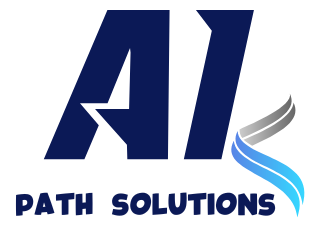As artificial intelligence (AI) continues to advance and integrate into various sectors, it raises critical ethical considerations that demand attention. The duality of AI as a powerful tool for innovation and a source of potential risks necessitates a careful examination of its ethical implications. This article explores the key ethical considerations surrounding AI, focusing on accountability, bias, transparency, privacy, and the impact on employment, while emphasizing the need for a balanced approach to innovation and responsibility.
1. Accountability in AI Development
One of the most pressing ethical concerns in AI is accountability. As AI systems become more autonomous, it becomes challenging to determine who is responsible for their actions. If an AI system makes a harmful decision, such as in autonomous vehicles or medical diagnostics, questions arise regarding liability. Should the blame fall on the developers, the users, or the organizations deploying these systems?
To address this issue, organizations must establish clear accountability frameworks. This includes defining roles and responsibilities in the development and deployment of AI systems. Companies should also consider implementing audits and assessments to evaluate the ethical implications of their AI technologies. By fostering a culture of accountability, developers can ensure that AI is used responsibly and ethically.
2. Addressing Bias and Fairness
Bias in AI is another significant ethical concern. AI systems learn from data, and if the training data contains biases, these biases can be perpetuated and amplified in AI decisions. This has serious implications, particularly in areas like hiring, lending, and law enforcement, where biased algorithms can lead to discrimination against certain groups.
To mitigate bias, developers must prioritize fairness in their AI systems. This includes conducting bias audits during the data collection and model training processes. Additionally, organizations should strive to use diverse and representative datasets to ensure that AI systems are trained on a wide range of perspectives. Transparent reporting of AI outcomes and continuous monitoring for biases can further help in addressing this issue.
3. Ensuring Transparency
Transparency is essential in building trust in AI systems. Users should have a clear understanding of how AI algorithms work and how decisions are made. However, many AI systems, particularly those based on deep learning, operate as “black boxes,” making it difficult to interpret their decision-making processes.
To enhance transparency, organizations should adopt explainable AI (XAI) principles. This involves developing AI systems that can provide human-understandable explanations for their decisions. By making AI more interpretable, users can better grasp the reasoning behind AI actions, leading to increased trust and acceptance.
4. Protecting Privacy and Data Security
The integration of AI often involves the collection and analysis of vast amounts of data, raising concerns about privacy and data security. Personal data used for training AI systems can expose individuals to risks if mishandled or misused. High-profile data breaches and unauthorized access to sensitive information highlight the need for robust data protection measures.
Organizations must prioritize ethical data practices, including obtaining informed consent from individuals before collecting their data. Implementing strong encryption, access controls, and anonymization techniques can help protect sensitive information. Furthermore, organizations should be transparent about how they collect, store, and use data, empowering individuals to control their personal information.
5. Impact on Employment
The rise of AI poses significant questions about the future of work. While AI has the potential to enhance productivity and create new job opportunities, it also threatens to displace workers in certain sectors. As automation and AI technologies become more prevalent, the workforce must adapt to changing job landscapes.
To address the ethical implications of job displacement, businesses and governments must invest in reskilling and upskilling initiatives. Providing training programs that equip workers with the skills needed for the jobs of the future can help mitigate the negative impact of AI on employment. Moreover, fostering a dialogue between employers, employees, and policymakers can lead to collaborative approaches that ensure a fair transition into an AI-driven economy.
6. Balancing Innovation with Responsibility
As the pace of AI innovation accelerates, it is crucial to strike a balance between harnessing its potential and upholding ethical principles. While AI has the ability to revolutionize industries and improve lives, it must be developed and deployed responsibly. Organizations should establish ethical guidelines and frameworks that prioritize human well-being and societal benefit.
Collaborative efforts involving technologists, ethicists, policymakers, and the public are essential to navigate the complexities of AI ethics. By fostering an interdisciplinary approach, stakeholders can address ethical challenges comprehensively and develop AI technologies that align with societal values.
Conclusion
The ethical considerations surrounding AI are complex and multifaceted. As AI continues to evolve and permeate various aspects of our lives, it is imperative to prioritize accountability, fairness, transparency, privacy, and the impact on employment. Striking a balance between innovation and responsibility will enable us to harness the full potential of AI while ensuring that it serves humanity ethically and equitably.
By adopting a proactive approach to ethical AI development, organizations can build trust, foster collaboration, and create a future where AI enhances human life while respecting fundamental ethical principles.

